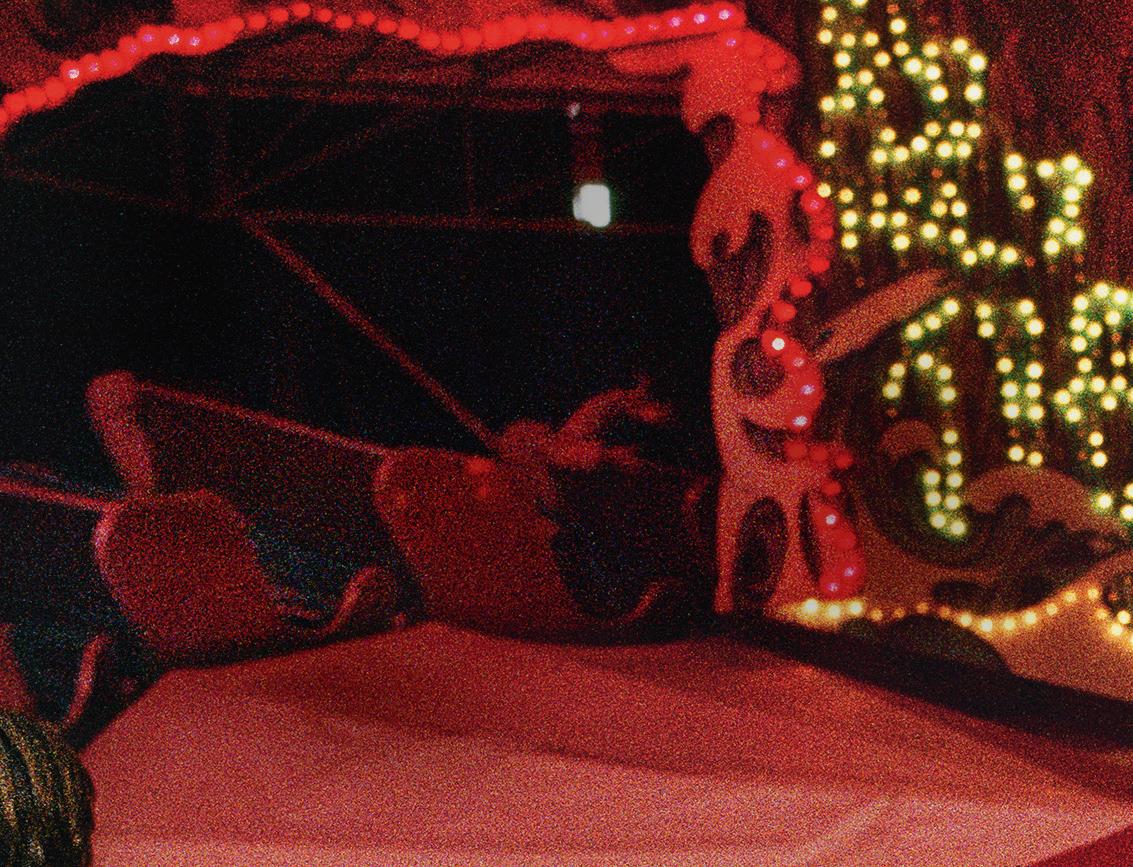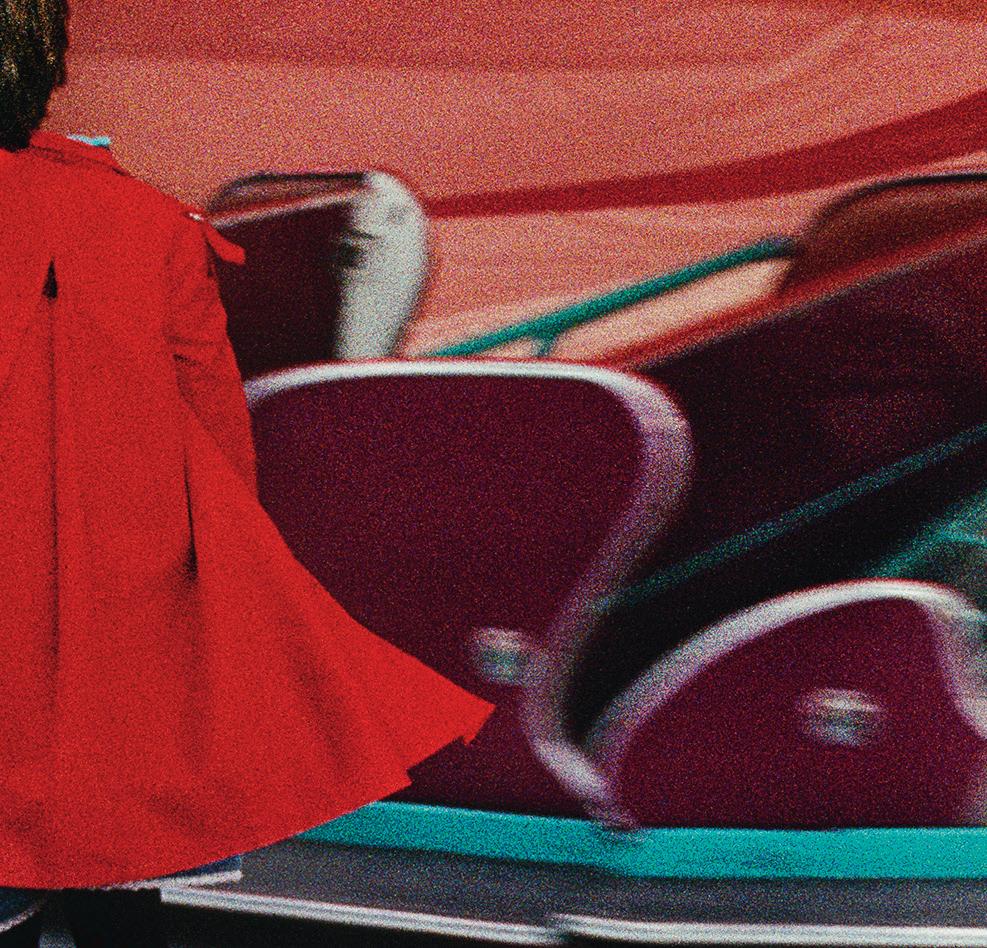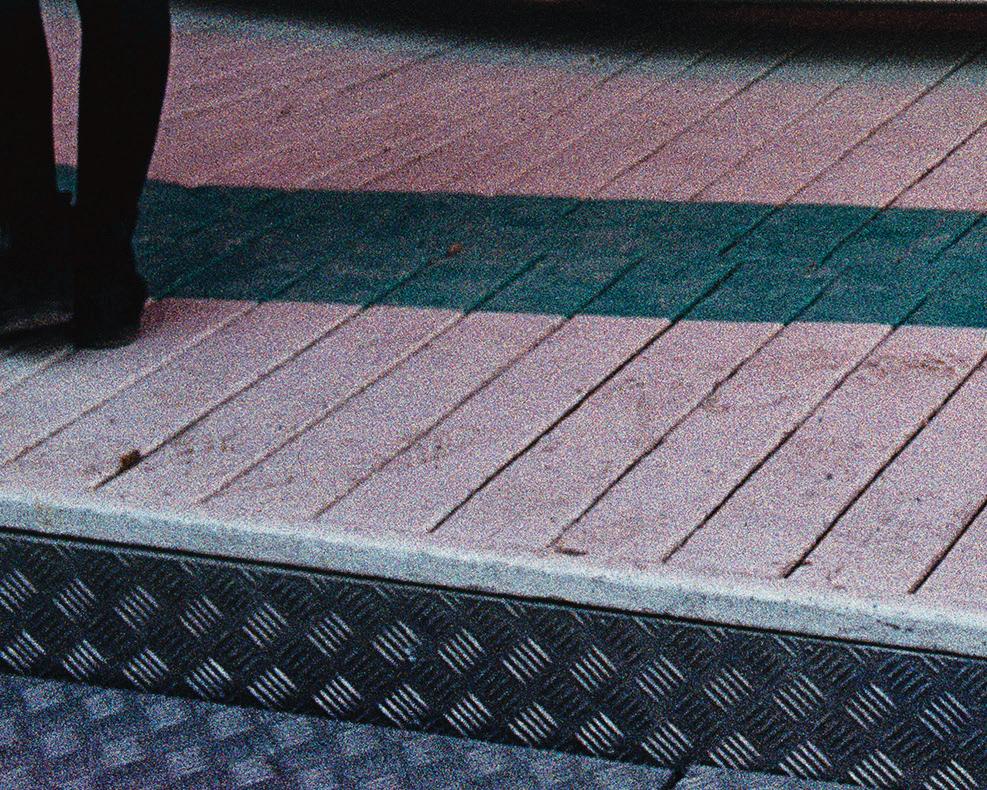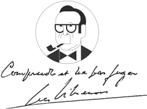








‘Extraordinary masterpieces of the twentieth century’
– John Banville
‘A brilliant writer’ – India Knight
‘Intense atmosphere and resonant detail . . . make Simenon’s fiction remarkably like life’
– Julian Barnes
‘A truly wonderful writer . . . marvellously readable – lucid, simple, absolutely in tune with the world he creates’
– Muriel Spark
‘Few writers have ever conveyed with such a sure touch, the bleakness of human life’
‘Compelling, remorseless, brilliant’
– A. N. Wilson
– John Gray
‘A writer of genius, one whose simplicity of language creates indelible images that the florid stylists of our own day can only dream of’ – Daily Mail
‘The mysteries of the human personality are revealed in all their disconcerting complexity’
– Anita Brookner
‘One of the greatest writers of our time’ – Sunday Times
‘I love reading Simenon. He makes me think of Chekhov’
– William Faulkner
‘One of the great psychological novelists of this century’
– Independent
‘The greatest of all, the most genuine novelist we have had in literature’
– André Gide
‘Simenon ought to be spoken of in the same breath as Camus, Beckett and Kafka’
– Independent on Sunday
Georges Simenon was born on 12 February 1903 in Liège, Belgium, and died in 1989 in Lausanne, Switzerland, where he had lived for the latter part of his life. Between 1931 and 1972 he published seventy- five novels and twenty- eight short stories featuring Inspector Maigret. Simenon always resisted identifying himself with his famous literary character, but acknowledged that they shared an important characteristic:
My motto, to the extent that I have one, has been noted often enough, and I’ve always conformed to it. It’s the one I’ve given to old Maigret, who resembles me in certain points . . . ‘Understand and judge not’.
UK | USA | Canada | Ireland | Australia
India | New Zealand | South Africa
Penguin Classics is part of the Penguin Random House group of companies whose addresses can be found at global.penguinrandomhouse.com.
Penguin Random House UK
One Embassy Gardens, 8 Viaduct Gardens, London SW 11 7 BW penguin.co.uk
First published in French as Maigret et le client du samedi by Presses de la Cité 1962
This translation fi rst published 2018
Published in Penguin Classics 2025 001
Copyright © Georges Simenon Limited, 1962
Translation copyright © Siân Reynolds, 2018


GEORGES SIMENON and ® , all rights reserved
MAIGRET ® Georges Simenon Limited, all rights reserved original design by Maria Picassó i Piquer

All rights reserved
The moral rights of the author and translator have been asserted
Penguin Random House values and supports copyright.
Copyright fuels creativity, encourages diverse voices, promotes freedom of expression and supports a vibrant culture. Thank you for purchasing an authorized edition of this book and for respecting intellectual property laws by not reproducing, scanning or distributing any part of it by any means without permission. You are supporting authors and enabling Penguin Random House to continue to publish books for everyone. No part of this book may be used or reproduced in any manner for the purpose of training artificial intelligence technologies or systems. In accordance with Article 4(3) of the DSM Directive 2019/790, Penguin Random House expressly reserves this work from the text and data mining exception.
Typeset by Palimpsest Book Production Limited, Falkirk, Stirlingshire
Printed and bound in Great Britain by Clays Ltd, Elcograf S.p.A.
The authorized representative in the EEA is Penguin Random House Ireland, Morrison Chambers, 32 Nassau Street, Dublin D 02 YH 68
A CIP catalogue record for this book is available from the British Library
ISBN : 978–0–241–30395–5
Penguin Random House is committed to a sustainable future for our business, our readers and our planet. This book is made from Forest Stewardship Council® certified paper.
Some images, for no reason, and without our realizing it, cling on and remain obstinately lodged in our memories, although we are barely conscious of having registered them and they correspond to nothing of significance. So it was that, years later, Maigret could probably have reconstructed, minute by minute, gesture by gesture, that uneventful late afternoon at Quai des Orfèvres.
In the first place, there was the black marble clock with its bronze fittings, on which his gaze had alighted as it showed 6.18, which meant it was actually just after half past six. In ten other offices in the Police Judiciaire, occupied by the chief himself and the other senior inspectors, identical clocks stood flanked by their candelabra and, since time immemorial, they too had run slow.
Why did the thought strike him today, and not any other day? For a moment, he wondered how many administrative centres and ministries had long ago been provided with a whole consignment of these clocks, manufactured by a certain F. Ledent, whose signature in fine running script adorned the pale clock face, and his mind wandered to the negotiations, plots and bribes that would have preceded such an important contract.
F. Ledent had been dead for half a century, possibly even a century, to judge by the style of his clocks.
The desk lamp with its green shade was lit, since it was January. Throughout the building, all the lamps too were the same kind.
Lucas, standing up, was putting into a pale yellow folder the documents that Maigret had passed him, one by one.
‘Shall I leave Janvier on duty at the Crillon?’
‘Not for too long. Send someone to take over this evening.’
There had recently been, one after another, as often happened, a series of jewel thefts in the grand hotels on the Champs-Élysées, and in each of them the police had set up discreet surveillance.
Automatically, Maigret pressed his electric bell. The elderly usher, Joseph, with his silver chain of office, appeared at the door at once.
‘No one else for me?’ the inspector asked.
‘Just the madwoman.’
It was of no importance. Some months, she would turn up two or three times a week at Quai des Orfèvres and, without a word, slip into the waiting room, to settle down with her knitting. She never came up to the desk. The first day, Joseph had asked her who she wished to see.
She had smiled at him with an arch, almost mischievous air, and said:
‘Detective Chief Inspector Maigret will call me when he needs me.’
Joseph had given her a form. She had filled it in with regular convent- educated handwriting. Her name was Clémentine Pholien and she lived in Rue Lamarck.
That time, Maigret had asked Janvier to receive her.
‘Have you been summoned?’
‘Detective Chief Inspector Maigret knows about it.’
‘Did he send you a summons?’
She smiled, a little woman, graceful despite her age.
‘No need for that.’
‘You’ve got something to tell him?’
‘I might have.’
‘He’s very busy just now.’
‘That doesn’t matter. I’ll wait.’
She had waited until seven in the evening, then she had left. They saw her back again a few days later, with the same purple hat, the same knitting, and she took her seat as if she were a regular, in the glass-panelled waiting room.
They had made a few inquiries, just to check. She had run a haberdasher’s in Montmartre for many years, and now had a comfortable income. Her nieces and nephews had several times tried to have her interned in a psychiatric hospital, but on each occasion she had been sent home, on the grounds that she posed no risk to anyone.
Where had she chanced on Maigret’s name? She evidently did not know him by sight, since he had walked several times past the glass partition when she was there, and she had not recognized him.
‘Very well, Lucas. Time to shut up shop!’
They were going home early, especially for a Saturday. Maigret filled his pipe and fetched his coat, hat and scarf from the cupboard.
He went past the waiting room, turning his head away as a precaution, and once in the courtyard was faced with
the yellow-tinged fog that had settled on Paris during the afternoon.
He was in no hurry. The collar of his overcoat turned up, hands in pockets, he made his way round the Palais de Justice, passed under the great clock on the embankment, and crossed the Pont-au- Change. As he reached the middle of the bridge, he suddenly had the feeling he was being followed, and turned round abruptly. There were numerous passers - by in both directions. Nearly everyone, because of the cold, was walking quickly. He was almost sure that a darkly clad man, about ten metres away from him, had suddenly done an about-turn.
He attached no importance to it, and besides it was just an impression.
A few minutes later, he was waiting for his bus in Place du Châtelet, then found enough room on the rear platform to carry on smoking his pipe. Did it really have an unusual taste? He would have sworn it. Perhaps because of the fog, and a certain quality in the air. A very pleasant taste anyway.
He was thinking about nothing in particular, but gazed absent-mindedly at his fellow passengers’ heads nodding with the motion of the bus.
Then he was back on the pavement in the almost deserted Boulevard Richard-Lenoir, and glimpsing the lights of his apartment, which he always recognized from a distance. He started up the familiar staircase, saw the strips of light under the doors, heard muffled voices and the sound of radios playing.
The front door opened as usual, before he had touched
the handle, and Madame Maigret, silhouetted against the light, put a mysterious finger to her lips.
He looked at her questioningly, trying to see past her.
‘There’s someone here . . .’ she whispered.
‘Who?’
‘I don’t know. He’s a bit odd.’
‘What did he say?’
‘That he absolutely had to speak to you.’
‘What’s he like?’
‘I can’t say exactly, but there’s drink on his breath.’
There was a quiche lorraine for supper, he could tell by the smell from the kitchen.
‘Where is he?’
‘I got him to sit in the front room.’
She took his coat, hat and scarf. The flat seemed less light than usual, but that again was obviously just an impression. With a shrug, he pushed the door of their front room, where for a little over a month now, a television set had been installed in a prominent place.
The man had remained standing in a corner, coat on and hat in hand. He seemed intimidated and hardly dared look at the inspector.
‘Forgive me for following you home,’ he stammered.
Maigret had immediately noticed the man’s hare-lip and was not displeased to find himself at last face to face with this person.
‘You’ve been coming to Quai des Orfèvres to see me, haven’t you?’
‘Several times, yes.’
‘And your name is . . . Just a minute . . . Planchon.’
‘Léonard Planchon, yes, that’s right.’
And he repeated more and more humbly:
‘Forgive me . . .’
His eyes were roving round the small room, coming to rest on the half-open door, as if he wanted to run away again. How many times had he left like that, without seeing the inspector?
At least five times. Always on a Saturday afternoon. So that they had started calling him ‘the Saturday caller’.
It was rather like the case of the madwoman, with variations. The Police Judiciaire, like a newspaper office, attracts all kinds of people who are behaving oddly in some way, and in the end some of them become known and familiar faces.
‘I did write to you first,’ he murmured.
‘Please sit down.’
Through the glass door into the dining room, the table could be seen laid for dinner and the man glanced towards it.
‘It’s time for your supper, isn’t it?’
‘Sit down,’ said Maigret again, with a sigh.
For once he was home early, but his evening meal was going to have to wait. Too bad about the quiche! And the television news! For the last few weeks, he and his wife had adopted the habit of watching television while they ate, which had meant moving to different places at the table.
‘You say you’ve written to me?’
‘At least ten letters.’
‘Signed with your name?’
‘The first ones weren’t signed. I tore them up. Then I tore up the others too. That’s when I decided to come and see you.’
Maigret, too, recognized the smell of alcohol, but the man in front of him was not drunk. Nervous, yes. His clasped fingers were pressed together so tightly that the knuckles were white. Only gradually did he gather enough confidence to look straight at the inspector, and his expression was almost beseeching.
How old was he? Hard to say. Neither young nor old, but he gave the impression of never having been young. Thirty-five?
Nor was it easy to guess the social category to which he belonged. His clothes, although of poor cut, were of good quality; his hands, while very clean, were those of a manual worker.
‘Why did you tear up the letters?’
‘I was afraid you’d think I was mad.’
And looking up, with a clear need to convince, he added:
‘I’m not mad, inspector. I beg you to believe that I’m not mad.’
This was generally a bad sign, yet Maigret was already almost persuaded. He could hear his wife coming and going in the kitchen. She must have taken the quiche out of the oven, but it would in any case be spoiled now.
‘So you wrote several letters to me. Then you came to Quai des Orfèvres. On a Saturday, if I remember rightly?’
‘It’s the only day I’m free.’
‘What is it you do, Monsieur Planchon?’
‘I’ve got a painting and decorating business. A very modest one. In the summer, I might have five or six men on the job. You get the idea.’
Because of his hare-lip, it was hard to say whether he
was smiling timidly or pulling a disparaging face. His eyes were very light blue, and he had fair, almost reddish hair.
‘The first time you called was about two months ago. You wrote on the form that you wanted to speak to me in person. Why?’
‘Because you’re the only person I feel I can trust. I read in the papers . . .’
‘Very well. That Saturday, instead of waiting, you left after about ten minutes.’
‘I was scared.’
‘What of ?’
‘I told myself you wouldn’t take me seriously. Or that you’d stop me doing what I had in mind.’
‘You came back the following Saturday . . .’
‘Yes.’
Maigret had been in a meeting that day with the chief of police and two other senior officers. When he had emerged, an hour later, the waiting room was empty.
‘Were you still scared?’
‘I didn’t know . . .’
‘What didn’t you know?’
‘I didn’t know if I wanted to go through with it.’
He rubbed his forehead.
‘It’s so complicated. You see, there are moments when I lose track . . .’
Another time, Maigret had sent Lucas to see to him. The man had refused to tell him why he was there, saying that it was personal, then he had literally fled.
‘Who gave you my address?’
‘I followed you. Last Saturday, I nearly came up to you
in the street, then I thought that wasn’t the right place. Not for the kind of conversation I wanted to have. Neither was your office. Perhaps you’ll understand . . .’
‘How did you know, this evening, what time I would be going home?’
And Maigret suddenly recalled the feeling he had had on the Pont-au- Change.
‘You were hiding on the embankment, weren’t you?’
Planchon nodded.
‘You followed me to the bus stop?’
‘Yes. Then I took a taxi and got here a few minutes before you.’
‘You have some problem that’s worrying you, Monsieur Planchon?’
‘Worse than a problem.’
‘How many drinks did you have before coming here?’
‘Two? Maybe three? Before all this, I hardly touched alcohol, at most a glass of wine with a meal.’
‘And now?’
‘It depends on the day. Or rather the night, I don’t drink on the job. If I had three brandies just now, it was to give me courage. Are you vexed with me?’
Maigret was puffing slowly at his pipe, not taking his eyes off his visitor, trying to form an opinion. He had not yet succeeded. He sensed in Planchon a pathetic side that distracted him. He had the impression of some repressed passion, of some overwhelming distress, accompanied by remarkable patience.
This man, and Maigret would have put his hand in the fire about that, had few social contacts: everything went